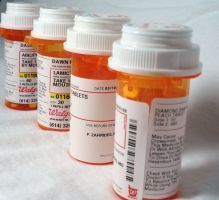 Another great piece on the overmedication issue is Judith Warner’s op-ed that ran in the New York Times in January. Warner is a powerful writer, especially when she takes on the anti-medication bias presented so often in the media today. To get to her original piece, click here. I have excerpted from it below.
Another great piece on the overmedication issue is Judith Warner’s op-ed that ran in the New York Times in January. Warner is a powerful writer, especially when she takes on the anti-medication bias presented so often in the media today. To get to her original piece, click here. I have excerpted from it below.
Happy pills don’t work, the story quickly became, even though, boiled down to that headline, it was neither startling nor particularly true.
Yet in all the excitement about “startling” news and “sugar pills,” a more nuanced and truer story about mental health care in America was all but lost.
That story begins to take shape when you consider what the new study actually said: Antidepressants do work for very severely depressed people, as well as for those whose mild depression is chronic. However, the researchers found, the pills don’t work for people who aren’t really depressed — people with short-term, minor depression whose problems tend to get better on their own. For many of them, it’s often been observed, merely participating in a drug trial (with its accompanying conversation, education and emphasis on self-care) can be anti-depressant enough.
None of this comes as news to people who have been prescribing or studying antidepressants over the past 20 years. Neither is it all that likely to change the practice of treating depression — at least as it’s carried out by responsible doctors.
The trouble is not that the drugs don’t work; it’s that the care is not very good.
Inadequate treatment by nonspecialists is only a piece of the problem. In fact, most Americans with depression, rather than being overmedicated, are undertreated or not treated at all. This might have been big news this week, too, had anyone noticed another academic study, a survey of nearly 16,000 people published this month in The Archives of General Psychiatry, which looked more broadly at the picture of depression in America. The survey found that those who did get care were given psychotherapy more often than drugs. That finding might give heart to those who would prefer to see more alternatives to psychiatric drugs — if it weren’t for the fact that so much psychotherapy is so bad.
In 2008, a team of psychologists brought this point home in blunt terms in the journal Psychological Science in the Public Interest. “Despite the availability of highly effective interventions,” they wrote, “relatively few psychologists learn or practice these interventions.”
This is the big picture of mental health care in America: not perfectly healthy people popping pills for no reason, but people with real illnesses lacking access to care; facing barriers like ignorance, stigma and high prices; or finding care that is ineffective.
It is a societywide concern that a co-author of the new antidepressants study readily acknowledges. “What we reported on was a very small piece of a very large problem,” Robert J. DeRubeis, a professor of psychology at the University of Pennsylvania, told me. “Those kinds of things are not being sorted out in this country because there’s no system. Nobody’s asking these questions.”
* Click here to subscribe to Beyond Blue and click here to follow Therese on Twitter and click here to join Group Beyond Blue, a depression support group. Now stop clicking.

